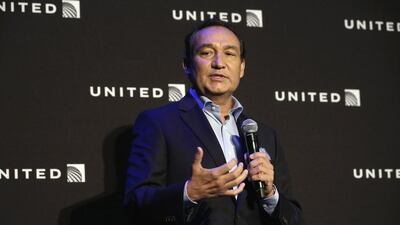It’s good to see Google and Facebook taking steps to flag fake news to users but given the United Airlines overbooking fiasco this week, they may also want to consider adding some form of outrage classifications to their services.
Such definitions would help us to identify more easily which of the increasingly common explosions of online anger we should care about, or how much attention we should pay them.
Businesses would especially benefit, since such flags might help them avoid costly public relations blunders.
The United situation – the latest such blunder – began on Sunday with the US airline overbooking a domestic flight. Volunteers were sought to make space for staff but when no one stepped forward, the airline itself randomly picked several passengers.
You know what happened next: one of the individuals refuses to vacate his seat, police called on board, a scuffle ensues, the passenger is bloodied and dragged away. The whole situation captured on video and shared online soon after.
Many social media users expressed shock and vowed to never fly United again. Ticket cancellations reportedly came pouring in and by Tuesday afternoon, the airline’s stock had dropped by more than 4 per cent.
Executives at Pepsi, who last week also provoked online anger with a tone-deaf ad that made light of protest movements, breathed a sigh of relief. The heat had moved on to someone else.
United’s “BookingGate” is sure to go down in history as the perfect example of what happens when a company becomes the target of the purest form of internet anger, which is …
Reformist outrage:
When an event crosses political, racial and gender divides – as BookingGate has – it has the potential to spur social change. The businesses involved will inevitably be disrupted, which usually means they’ll lose a lot of money along the way.
After seeing his company’s stock drop, United’s chief executive, Oscar Munoz, finally conceded that the airline will review its overbooking procedures and policies. Regulators have also responded, with some already talking about new rules. Canada, for example, is promising a new passenger bill of rights this spring in response.
An outrage identifier could have forewarned Mr Munoz – who, coincidentally, last month said Gulf airlines aren’t airlines but rather “international branding vehicles for their countries” – that anger over this particular situation is, ironically, united.
Rather than labelling the assaulted passenger as “disruptive” and “belligerent”, Mr Munoz might have struck a more conciliatory and helpful tone right from the start.
Subjective outrage:
He could perhaps be forgiven for missing the signs thanks to his airline’s relatively successful weathering of yet another venting of online anger just a few weeks ago.
That one involved United barring a pair of teenage girls from a flight for the unthinkable crime of wearing leggings. A social media frenzy ensued, but the billion-dollar loss didn’t happen largely because the airline was able to rationalise the incident.
The girls, it turns out, were flying on an employee’s family pass benefit. As such, they were considered representatives of the airline and had to adhere to a certain dress code.
While anger about the policy being overly rigid and possibly sexist continued, it was at least partially ameliorated as many onlookers saw United’s point.
“LeggingsGate” thus goes down as a case of subjective outrage – an incident that makes some people really angry but barely registers with others. For businesses, these are risky but manageable situations. For regular internet users, their inflammatory potential is dependent entirely on personal sensibilities.
Destructive outrage:
The last form of online anger is closely related to fake news and is indeed often caused by it. It’s no less dangerous since it can lead to people doing destructive things, especially in the voting booth.
The story about Hillary Clinton having an FBI investigator murdered because he was looking into her use of a private email server – an actual story that circulated during last year’s US election – is a great example.
Fortunately, Google is now rolling out a “Fact Check” tool that helps users verify the veracity of search results. Facebook has also started to provide users with tips in their news feeds on how to spot dubious information.
They’re good first steps and internet companies should definitely do more to fight fake news, but identifying the different types of outrage may be just as important.
As Mr Munoz has amply demonstrated, there is potentially a big price to pay when we can’t tell one sort of anger from another.
The tech week’s winner and loser
Winner of the Week: BlackBerry. The former smartphone maker reported its sixth straight quarter of better-than-expected earnings thanks to its continuing shift into software.
Loser of the Week: Samsung. The electronics giant says its Bixby voice assistant won't work on the upcoming Galaxy S8 smartphone right away. The company hasn't explained the delay.
Peter Nowak is a veteran technology writer
business@thenational.ae
Follow The National's Business section on Twitter

